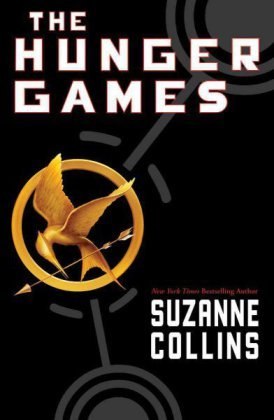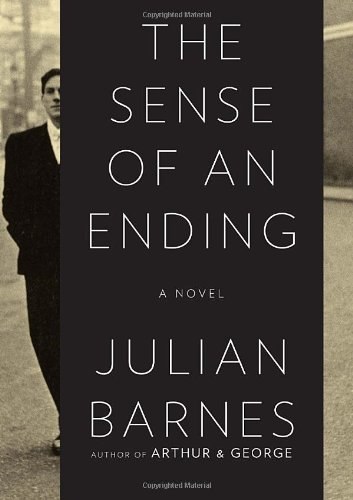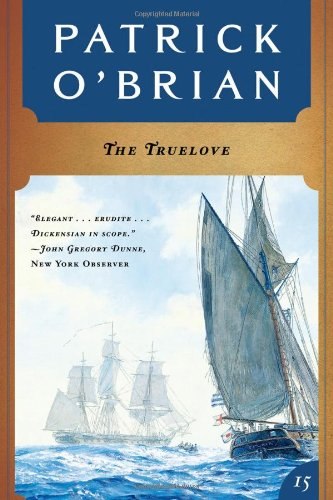“Designing The New Media Economy” (pdf), written with Diane Greco.
by Suzanne Collins
A remarkable book and a small cultural phenomenon and apparently what every literary reviewer’s 14-year-old daughter is reading. Those 14-year olds are having a hell of a good time, because Collins knows how to drive plot. Even if you know where this is leading – it’s not hard to stay three or four moves ahead – the saga is terrifically exciting. And Collins has an exact ear for violence and desire, showing exactly enough to redeem our attention (because witnessing terrible events must not be a walk in the park) but not turning our stomachs.
Collins is masterful in finding ways for her protagonists to survive in combat and yet not to become monsters. Nor are all the opponents ghastly, though some are. We meet one girl who is insane with sadism, and I do wish we’d gotten to know her well enough to explain her. Is she Piggy in Lord of the Flies, or Hannibal Lecter, or just a desperate little girl who has come unhinged? Collins does manage to tell us a lot about “Foxface”, an enemy with whom we never exchange a word but whom we get to know quite well and, eventually, to admire. If Harry Potter, at its best, delighted us with surprises, The Hunger Games sets up wonderful moments, long anticipated but still somehow fresh.
The following quibbles should not deter you from reading the book, but invite discussion amongst people who have. I find the review literature surprisingly thin and superficial, but no doubt I have been looking in the wrong places.
Collins’s world building is adequate but occasionally surrenders plausibility to the perceived needs of her audience. The central conceit of punitive gladiatorial games as a tool for subjugating the conquered provinces makes no political sense, and the oppressive surveillance society (and Soviet-style planned economy) into which our hero is born seems an arbitrary response to life after the ecological apocalypse. Our home in District 12 is literally dirt poor, a coal mining enclave in what used to be Appalachia. Most of the population is malnourished. People frequently starve to death on the town streets. It’s a place where an orphaned 12-year-old girl needs to learn quickly how to feed her family on dandelion greens and wild squirrels. But when that girl has the bad luck to be chosen for the Hunger Games and is sent to the Capitol, she suddenly knows a lot about about skin moisturizer and automatic showers and syringes. Somehow she knows how to walk in heels and to wear strapless gowns. One day we learn that she’s never tasted hot chocolate; two days later, she orders up a snack of duck liver paté. This is substituting the reader’s knowledge for the protagonist’s.
The world of The Hunger Games is sometimes thinly inhabited. The annual gladiatorial contest is compulsory viewing for the entire nation. The spectacle is built around spectators: every moment of the games is broadcast on live television, the announcer is a famous celebrity, betting is common, and the rules permit “sponsors” to send gifts (at exorbitant expense) to participants. Children from richer districts spend years training for the games in a grim parody of the Olympics. Still, we seldom recall anything from previous games; even if they aren't great fans, kids would know something about famous victories and spectacular blunders.
This is a contemporary YA novel, and so inevitably concerns sex roles is society. What Collins has done here is very clever: The Hunger Games is a gender-swapped retelling of the origin story of Robin Hood. Katniss Everdeen plays Robin: daughter of a minor aristocrat who married a peasant for love. Collins places shopkeepers, who live “in the Town,” as gentry and miners, who live “in the Seam,” as peasants. The aristocrats who live in the distant Capitol speak with funny accents and wear peculiar clothes. We’ve got Normans and Celts and the whole shebang: William Morris would be proud. So would Marx.
Katniss/Robin is brilliant with a bow and loves the outdoors. Peeta, the District 12 boy drafted into the death-match is Maid Marian: he has silently loved Katniss since they were toddlers. He is a child of local gentry – the town baker. He has feminine accomplishments like baking and painting. He knows nothing of the hunt. But while Katniss is often at a loss for words, Peeta always knows what to say. People just like him. Their coach, a depressed alcoholic who won the Hunger Games many years ago, can only be the bibulous Friar Tuck.
This is clever, but makes me uncomfortable because, beyond the gender swap, the sex roles and the romance are so completely conventional. Swap Katniss and Peeta, and many scenes become impossibly sentimental: the strong, competent hero and the devoted admirer. I don’t imagine it’s meant to indicate that girls ought to be satisfied with traditional roles if that’s what seems in their nature, but surely the book can be read that way. There’s a certain squeamishness about bodies, too, given that so much of the character’s time is spent binding wounds or inflicting them; Katniss is always a girl but, though she thinks a lot about size, strength and agility, she almost never thinks about being female. And, although we have twenty four healthy young people confined together, often huddled together for warmth, terrified, and having little reason to worry about pregnancy or STDs or tomorrow, no one thinks of sex.
This isn’t science fiction and it’s not fantasy — the world isn’t coherent and that doesn’t much matter. It’s pure, melodramatic, romantic adventure, and a hell of a good time.

- salmon rillettes (we’re fresh out of fat squirrels)
- Prim’s peppadew peppers and goat cheese
- fennel, pear, and sparkling cider soup
- katniss squash soufflé ❧ onion tart
- Hob posóle ❧ carolina BBQ ❧ district 11 rolls
- roast Giannone grooslings
- nightlock berry jelly
- blood orange sorbet ❧ candied orange peel
- pets de “game maker”
- mignardises: chocolate mud biscuits and orange shortbread
For a book about hungry people The Hunger Games
talks a lot about food. My mood has been violent lately, so here’s my Hunger Games Menu. Almost every dish has fruit and grain, almost everything here is something you could hunt or gather in the woods, or something dried or preserved. But of course there’s a lot of foods here.
Too much, really. The chicken was meant to be accompanied by the posole and barbecue, but a slow oven meant it had to follow it. Oh well.
I was particularly proud of the District 11 rolls, which feature prominently in the book and which are the first bread recipe I improvised. They're supposed to be rustic; I added some sprouted wheat flour and a good deal of molasses, and for liquid I used 50% buttermilk and 50% water. They’re supposed to be seedy; I used 2T of caraway and could have used more. I’d not made crescent rolls before, but I’ve seen a YouTube demo of croissants; they came out fine. An egg yolk glaze did no harm.
The blueberry jelly was a bit disappointing, of only because the cherry and lemon jellies I’ve made before were so intensely fruity. The blood orange sorbet was a winner.
These days, by the time people contact tech support, they're angry and they're desperate. The desperation stems from the expectation a long wait after which they'll receive scant help from ill-equipped operators, and the anger anticipates that the whole effort will be fruitless.
The software industry has trained people to expect this.
Its current solution to the problem, unfortunately, is to price the near-certainty of failure into the product. After all, how angry can the angry villagers be if they only spent 99 cents?
We've got to find a better way.

I'm having a good deal of fun with Triple Town, an iOS (and Android) game by Daniel Cook of Spry Fox. They seem to be having unpleasantness with people who have cloned the game after affecting negotiations to publish the game, and so this might be a nice time to download the free game and even to unlock its unlimited play mode for a few dollars.
by Suzanne Collins
I'm having an unreasonable amount of fun with Suzanne Collins’s Hunger Games
. It’s early days yet, just half way through, and perhaps it will all fall apart, the way Old Man’s War did. But Collins sure knows how to move a story along, and even though you frequently know where she’s going, it’s lots of melodramatic fun to see how we get there.
Newly expanded and now online, a wonderfully opinionated and scholarly reference. Also some terrific writing: here’s part of the entry for Kathryn Cramer:
she has been involved in various capacities with the New York Review of Science Fiction since it began in 1988, where she has published some spiky, erudite criticism. She has become deeply involved in arguing the aesthetic case for – and writing – fiction designed for Hypertext, including "In Small & Large Pieces" (1994 The Eastgate Quarterly Review of Hypertext #3); given rapid advances in the necessary technologies, her advocacy – which seemed premature in the 1990s – may yet seem to have been predictive.
The entry on hypertext, which I understand to be the work of Neal Tringham, is extraordinarily good – perhaps the best short introduction to hyperfiction yet published.
Ran into Stop and Shop at midnight on the way home to grab some milk, and also bought a quart of buttermilk while I was there because, ironically, Stop and Shop stocks better buttermilk than Whole Foods.
“What are you going to do with the buttermilk?” asked the cashier, who was lonely and at the end of her shift.
“Pancakes, of course.”
“I wish I had time to make pancakes in the morning!”
I forbore to suggest that she find a nice fellow (gender to taste) who would get up a little early and make her some pancakes. Instead, I gave her the party line, that cooking doesn’t really take much time.
It seems to me that the right way to do this, if you’re not a morning person, is to mix your dry ingredients the night before.
- 3/4 c flour
- 1/2t salt
- 1T sugar
- 3/4 t baking powder
- 1/2 t baking soda
- a handful of crushed pecans if you like them
Then in the morning, all you have to do is heat some butter in the pan. While it's heating, start the coffee. Then you throw in
- 3/4c buttermilk
- 1 egg
and you stir it a few times with a wooden spoon. You don't have to get the lumps out or anything—just get everything mixed together. Spoon it out into the hot pan. Flip. Eat.
Discovery when doing snack support for last weekend’s Tinderbox: the donuts at Ohlin’s Bakery in Belmont are exceptional.
Update: corrected URL.
Graph this: (sqrt( cos( x))* cos( 300* x)+ sqrt( abs( x))- 0.7)* (4- x* x)0.01, sqrt( 6- x2), ‑sqrt( 6- x2) for x=[-4.5,4.5]. Google .
Takes you back to 10th grade.
Ziff Davis writer Violet Blue wrote a paragraph about a someone she saw at MacWorld:
I was, in fact, looking at The Saddest Booth Babe In The World. […]
She sat on a stool in between two large monitors across the aisle from us. The pretty brunette was in one of those big corner booths that paid a few bucks for that sorta-prime real estate you know is a gamble for whoever forked over the money to sell wignuts or widgets or iPhone cases or other sundry USB landfill.
Her shoulders were hunched and her hands sat limply in her lap beneath breasts that were packaged air-tight in a tight, branded t-shirt.
She stared at the floor. Unlike her counterparts, she never smiled. Sad booth babe was sad.
Some discussion ensued. Was the woman a booth babe? Some thought she was developer Piroska Szurmai-Palotai. It turned out the woman was the developer’s colleague in the PR department, Zsófia Rutkai. She was not, in any case, a booth babe – a model or actor hired specifically to work the trade show.
Blue was widely criticized for her error, and launched a ferocious (and ill-advised) defense of an indefensible position. Chuck Jordan reviews the damage.
And to someone who actually cares, the easiest and laziest way to get him to back down from an argument is to claim that he’s complicit in behavior that he’d never want to be associated with. And it’s bullshit. It sucks when it’s used as an attack, and it sucks when it’s used as a condescending ‘teachable moment.’
More on the pro journalism front: Hillary Rosner, What I Saw At The Women’s Mags.
Two singularly sensational sentences from Fowler:
Sturdy indefensibles. Many idioms are seen, if they are tested by grammar or logic, to express badly, even sometimes to express the reverse of, what they are nevertheless well understood to mean. Good people point out the sin, and bad people, who are more numerous, take little notice and go on committing it; then the good people, if they are foolish, get excited and talk of ignorance and solecisms, and are laughed at as purists; or, if they are wise, say no more about it and wait.
I’m a patzer when it comes to pots of pans.
A recent dinner guest who cooks professionally told a friend that my cooking was dramatic because it was constantly on the edge of disaster. Naturally the paraphrase came back to me.
But it’s true: the edge is so much fun.
Michael Ruhlman has a nice series, incidentally, about a recent, relaxing trip to Key West where he wrote in Ernest’s shadow and cooked dinner for sixteen every night.
It requires a certain amount of stress to cook for a lot of people. Otherwise you won’t get it done. Too much work, and therefore too much focus and efficiency to both get everything done and also enjoy yourself. You’ve got to like this very peculiar kind of stress.
by Julian Barnes
Winner of this year’s Booker Prize, this is the story of a romantic disaster told by an outsider who admits that he just doesn’t get it. Much of this slender story is a metafictional speculation on the unreliability of history and memory, epitomized by a narrator who mistrusts himself, his memory, and his motives.
Alan Holinghurst’s recent novel, The Stranger’s Child, travels much the same road. Many expected The Stranger’s Child to win the prize this book carried off. Barnes is more concise and more intense, but Hollinghurst has a broader canvas and more generous sympathies.
The novel hinges on withheld secrets and progressive revelation. We slowly uncover what really happened some forty years ago when the narrator’s former girlfriend took up with a boy he had known and admired in prep school. Oddly, though, the final revelation strikes me as nearly implausible: it could happen, I suppose, but it explains events no better than our callow narrator’s initial, naive suppositions. Odder still, the story we finally uncover is actually the cover story other characters would have invented to shield themselves from embarrassment.
by Patrick O'Brain
The Aubrey-Maturin books are finally available as eBooks, which is very convenient on cold winter nights when one finds oneself in a foul, foul mood. The Surprise sails from the penal colony of New South Wales to address Franco-American schemes in the Friendly Isles. Clarissa Oakes, a remarkable convict woman, has been smuggled aboard. She is much admired. This is not entirely a good thing.
Gordon Meyer updated his Tinderbox-based weblog, Usable Help, to use internal templates. Here’s how.
Since day one, I've written, built, and managed the site using Tinderbox. It's rather remarkable that I'm still using the same tool a decade later, and almost astonishing that I'm using the same Tinderbox file (document), considering that I started with Tinderbox 1.0 on Mac OS 9. Tinderbox has continued to grow and evolve, and Mac OS has been radically transformed, but here I am with the same file I created so long ago.
From a review of Moon People by Dale M. Courtney, which Publishers Weekly writer Gabe Habash just dubbed the worst book ever.
For an optimistic and adventurous vision of our near future, this book is unmatched. We are presented with a world where war has ended, a country where NASA actually sends people into space, and a town in Florida where a man can take a woman to Red Lobster on their first date, and still take her to bed.


